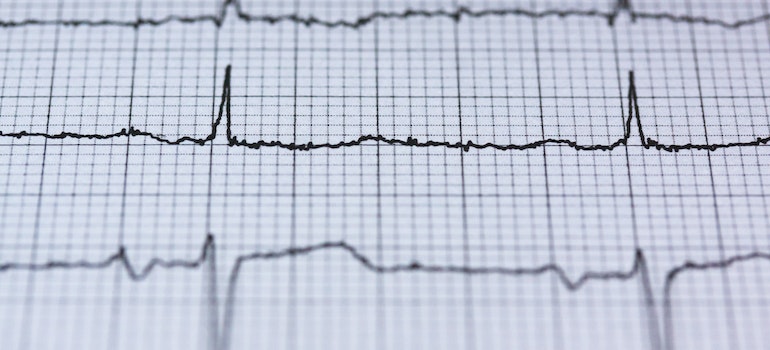Addiction affects every part of the body, but few organs take a harder hit than the heart. Substance use disorders (SUDs) significantly increase the risk of cardiovascular disease, high blood pressure, heart attacks, and strokes. Even after achieving sobriety, many individuals in recovery face lingering heart-related health challenges. However, the good news is that the heart is remarkably resilient. With the right lifestyle changes, medical care, and commitment to wellness, it is possible to rebuild cardiovascular strength post-addiction.
At Harmony Ridge Recovery, we believe that true recovery goes beyond quitting substances—it involves healing the body, mind, and spirit. Understanding the impact of addiction on heart health and taking proactive steps to repair the damage can make a significant difference in long-term well-being.

How Addiction Damages the Heart
Each substance affects the cardiovascular system differently, but all forms of substance misuse can cause inflammation, increased blood pressure, irregular heart rhythms, and weakened blood vessels.
1. Alcohol and Heart Health
Alcohol is one of the most commonly abused substances, and while moderate consumption has been debated for potential heart benefits, excessive and chronic drinking can cause serious damage.
- Cardiomyopathy: Heavy alcohol use weakens the heart muscle, making it less effective at pumping blood, leading to heart failure over time.
- Arrhythmias: Binge drinking is linked to irregular heartbeats, including atrial fibrillation, which increases the risk of stroke.
- High Blood Pressure: Alcohol raises blood pressure, which strains the arteries and increases the risk of heart attacks.
- Increased Cholesterol & Inflammation: Heavy drinking contributes to high cholesterol and systemic inflammation, leading to plaque buildup in the arteries (atherosclerosis).
2. Stimulants (Cocaine, Methamphetamine, Prescription Amphetamines)
Stimulant drugs put immense stress on the cardiovascular system by increasing heart rate, blood pressure, and the likelihood of heart attacks.
- Hypertension & Stroke Risk: Cocaine and methamphetamine cause severe spikes in blood pressure, sometimes leading to sudden cardiac arrest or strokes, even in young users.
- Arterial Constriction & Heart Attacks: Stimulants tighten the arteries, reducing oxygen supply to the heart and dramatically increasing the risk of heart attacks.
- Inflammation & Aneurysms: Chronic stimulant use inflames blood vessels, increasing the risk of aneurysms (weakened, bulging artery walls that can rupture).
3. Opioids and Cardiovascular Risks
Opioids like heroin, fentanyl, and prescription painkillers primarily depress the central nervous system, which includes the heart.
- Slow Heart Rate (Bradycardia): Opioids slow down heart function, which can lead to dangerously low blood pressure and inadequate blood flow to the brain and organs.
- Respiratory Depression & Heart Failure: Long-term opioid use weakens the cardiovascular and respiratory systems, increasing the likelihood of heart failure.
- Infections & Heart Damage: Intravenous (IV) drug use raises the risk of bacterial infections, particularly endocarditis, a potentially fatal infection of the heart valves.
4. Nicotine and Tobacco Use
While often overlooked, nicotine and tobacco use are major contributors to heart disease, and many in recovery continue smoking cigarettes or vaping.
- Atherosclerosis: Nicotine increases plaque buildup in arteries, reducing blood flow to the heart and brain.
- Increased Heart Rate & Blood Pressure: Smoking and vaping force the heart to work harder, raising the risk of hypertension and heart failure.
- Reduced Oxygen Supply: Carbon monoxide from cigarettes interferes with oxygen transport in the blood, making it harder for the heart to function efficiently.
The Road to Heart Health in Recovery
While addiction takes a significant toll on the cardiovascular system, the body has an incredible ability to heal. By making intentional choices, individuals in recovery can strengthen their heart health and improve overall well-being.
1. Regular Cardiovascular Screenings & Medical Care
Early detection and intervention are key to preventing long-term heart damage. After entering recovery, it’s essential to schedule a comprehensive cardiovascular assessment, including:
- Blood pressure monitoring
- Cholesterol and triglyceride levels
- Echocardiograms (if heart damage is suspected)
- Blood glucose tests (to check for diabetes, which is often linked to heart disease)
A healthcare provider can determine whether medication, lifestyle changes, or additional treatments are needed to restore cardiovascular health.
2. Nutrition for a Stronger Heart
Diet plays a crucial role in heart health, and individuals recovering from substance use should prioritize foods that reduce inflammation, improve circulation, and strengthen the cardiovascular system.
- Eat More:
- Omega-3-rich foods (salmon, flaxseeds, walnuts)
- Leafy greens (spinach, kale)
- Whole grains (quinoa, brown rice)
- Antioxidant-rich fruits (berries, oranges)
- Nuts & seeds (almonds, chia seeds)
- Avoid:
- Processed foods
- Trans fats & fried foods
- Excess salt
- Sugary drinks & refined sugars
3. Exercise: Rebuilding Cardiovascular Endurance
Physical activity is one of the best ways to strengthen the heart after addiction. However, starting an exercise routine should be done gradually, especially if there has been significant cardiovascular damage.
- Low-Impact Activities (for early recovery): Walking, yoga, light stretching
- Moderate-Intensity Exercises (after 3+ months of recovery): Jogging, cycling, swimming
- Strength Training (for long-term heart health): Resistance exercises, bodyweight training
Regular exercise improves circulation, lowers blood pressure, and helps manage stress—an important factor in relapse prevention.
4. Managing Stress & Emotional Health
Stress is a major trigger for both addiction and heart disease. Many individuals in recovery struggle with anxiety, depression, and trauma, which can contribute to heart-related health problems.
- Meditation & Deep Breathing: Studies show that mindfulness reduces blood pressure and lowers stress hormones that contribute to heart disease.
- Therapy & Counseling: Addressing past trauma, learning coping skills, and practicing emotional regulation all benefit both mental and cardiovascular health.
- Social Support & Connection: Isolation increases the risk of both addiction relapse and heart disease, so staying engaged in a supportive community is crucial.
5. Quitting Smoking & Reducing Caffeine
For many in recovery, quitting smoking can feel like a lower priority compared to overcoming drug or alcohol addiction. However, continued tobacco use keeps the cardiovascular system under stress.
- Within 24 hours of quitting, heart rate and blood pressure begin to drop.
- Within 3 months, circulation improves.
- Within 1 year, the risk of coronary heart disease is cut in half.
Similarly, reducing excessive caffeine intake can help stabilize heart rhythms and prevent spikes in blood pressure.
How Harmony Ridge Recovery Supports Heart Health
At Harmony Ridge Recovery, we emphasize whole-body healing as part of the recovery process. Our approach to rebuilding cardiovascular health includes:
- Medical Support: Regular health screenings and medical monitoring for cardiovascular recovery.
- Nutritional Counseling: Guidance on heart-healthy diets to reduce inflammation and improve heart function.
- Fitness & Movement Therapy: Structured exercise programs tailored to each individual’s recovery journey.
- Stress Management: Therapy, mindfulness training, and holistic treatments to lower stress and support emotional well-being.
- Tobacco Cessation Programs: Resources to help individuals quit smoking as part of their recovery plan.

A Stronger Heart for a Stronger Future
Healing from addiction isn’t just about abstaining from substances—it’s about rebuilding the body, mind, and spirit. The heart is one of the most affected organs in addiction, but it is also one of the most resilient. Through proper nutrition, exercise, stress management, and medical care, individuals in recovery can reclaim their heart health and improve their quality of life.
At Harmony Ridge Recovery, we are committed to guiding individuals on a path to lasting wellness. Recovery is more than just sobriety—it’s about creating a foundation for a long, healthy, and fulfilling life. If you or a loved one are seeking support, we are here to help every step of the way.



